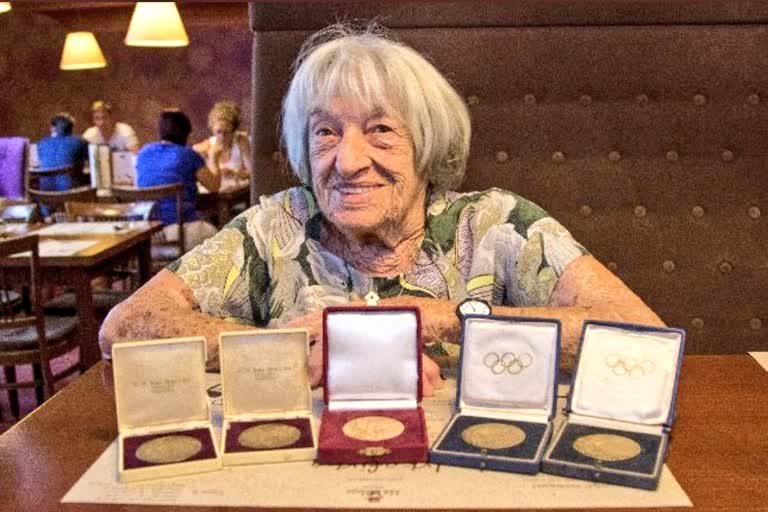Budapest: For Agnes Keleti, the oldest living Olympic champion, the fondest memory of her remarkable 100 years is simply that she has lived through it all.
The Holocaust survivor and winner of 10 Olympic medals in gymnastics — including five golds — celebrates her 100th birthday on Saturday in her native Budapest, punctuating a life of achievement, adventure, tragedy and perseverance which, she says, passed by in a flash.
"These 100 years felt to me like 60," she said at a celebration in Budapest on the eve of her birthday.
Keleti, who was born Agnes Klein in 1921, had her illustrious career interrupted by World War II and the subsequent cancellation of the 1940 and 1944 Olympics. Forced off her gymnastics team in 1941 because of her Jewish ancestry, Keleti went into hiding in the Hungarian countryside where she survived the Holocaust by assuming a false identity and working as a maid.
Her mother and sister survived the war with the help of famed Swedish diplomat Raoul Wallenberg, but her father and other relatives perished at Auschwitz, among the more than half a million Hungarian Jews killed in Nazi death camps and by Hungarian Nazi collaborators.
Resuming her career after the war, Keleti was set to compete at the 1948 London Olympics but a last-minute ankle injury dashed her hopes. Four years later, she made her Olympic debut at the 1952 Helsinki Games at the age of 31, winning a gold medal in the floor exercise as well as a silver and two bronzes.
Despite her achievements — with six medals she was the most successful athlete at the 1956 Melbourne Olympics and she is recognized as one of the most successful Jewish Olympic athletes of all time — the still-vivacious Keleti said she most values her health and the simple fact that she has lived. "Health is the essence", she said. "Without it, there is nothing."
In an interview with The Associated Press last year, Keleti said the experiences she gained while travelling the world were more precious to her than her 10 Olympic medals.
"I loved gymnastics because it was possible to travel for free," she said.
Those travels would ultimately result in a nearly 60-year absence from her native Hungary. At the age of 35, while she was becoming the oldest gold medalist in gymnastics history in Melbourne, the Soviet Union invaded Hungary following an unsuccessful anti-Soviet uprising. Keleti remained in Australia and sought political asylum. She then immigrated to Israel the following year and worked as a trainer and coached the Israeli Olympic gymnastics team until the 1990s.
After leaving Hungary for the Olympics in 1956, she visited her native country only once before returning to Budapest in 2015.
Keleti was awarded the Israel Prize in 2017 — considered that country's highest cultural honour — and is the recipient of numerous other prestigious awards, including being named one of Hungary's "Athletes of the Nation" in 2004. She holds individual gold medals in the floor exercise, balance beam and uneven bars.
Today, Keleti follows her doctor's recent advice to avoid performing full leg splits, and her near-perpetual smile and infectious laughter are reminders that even in times of great hardship, there remains the immutable potential for perseverance and the joy of life.



